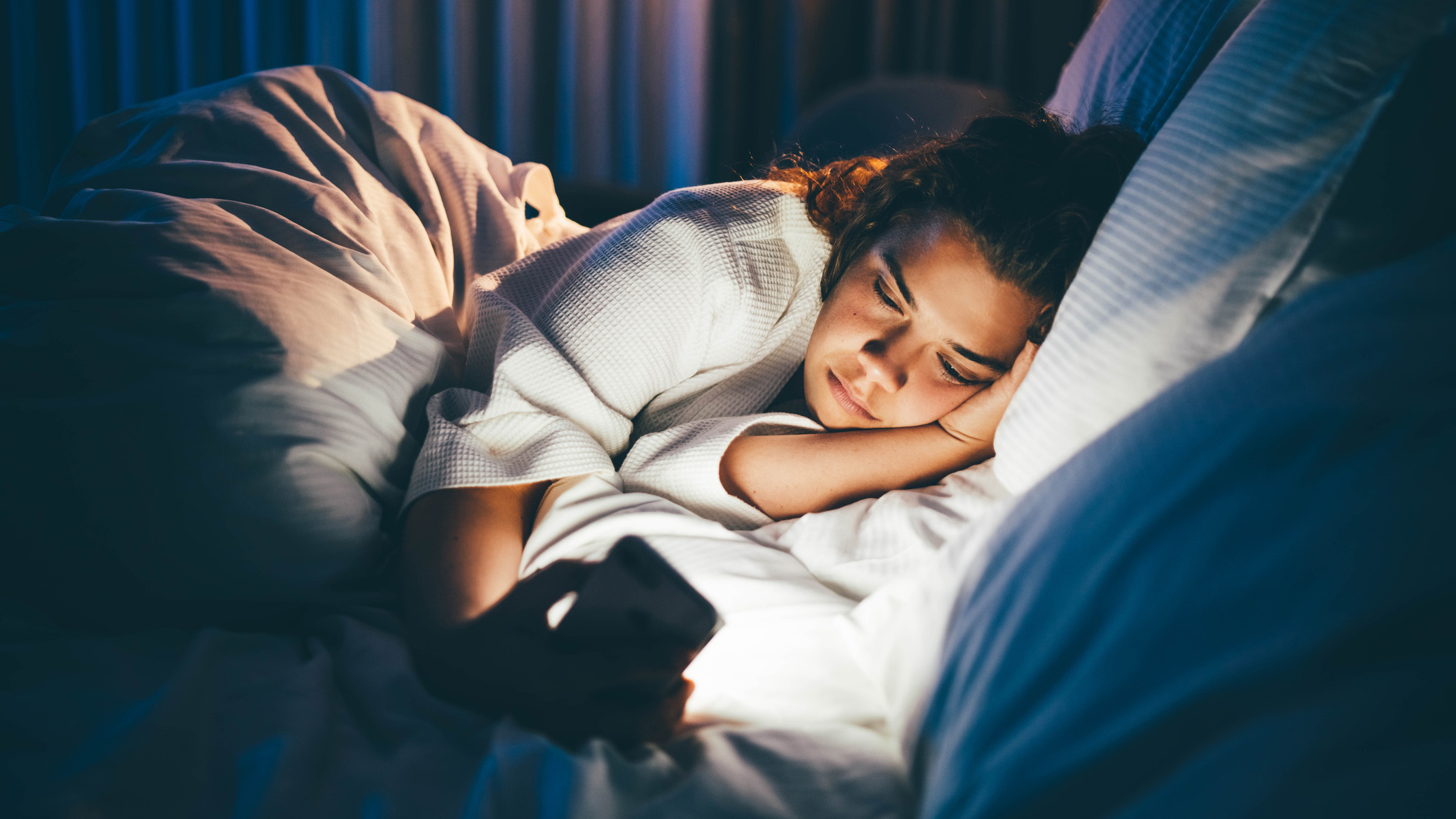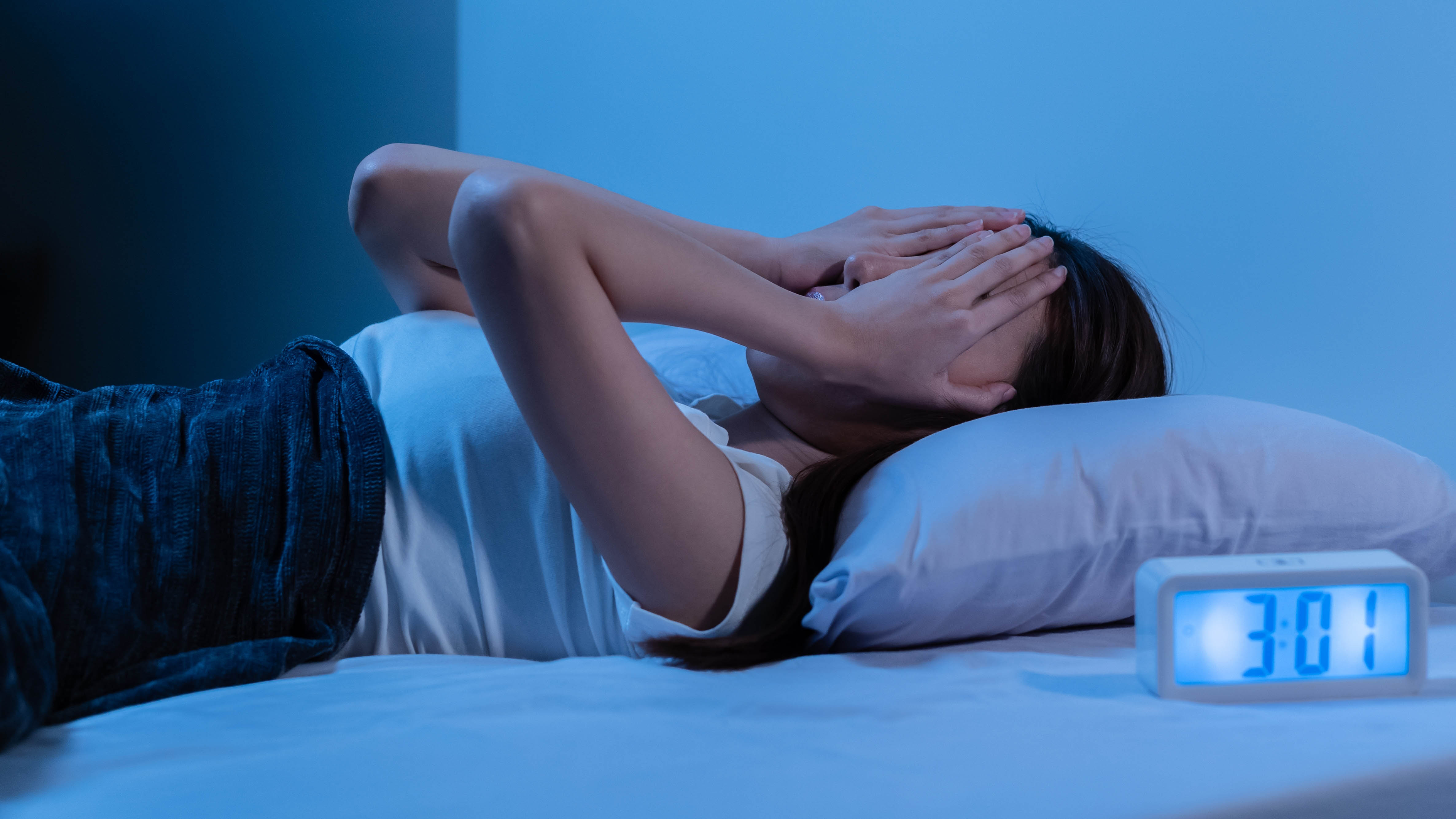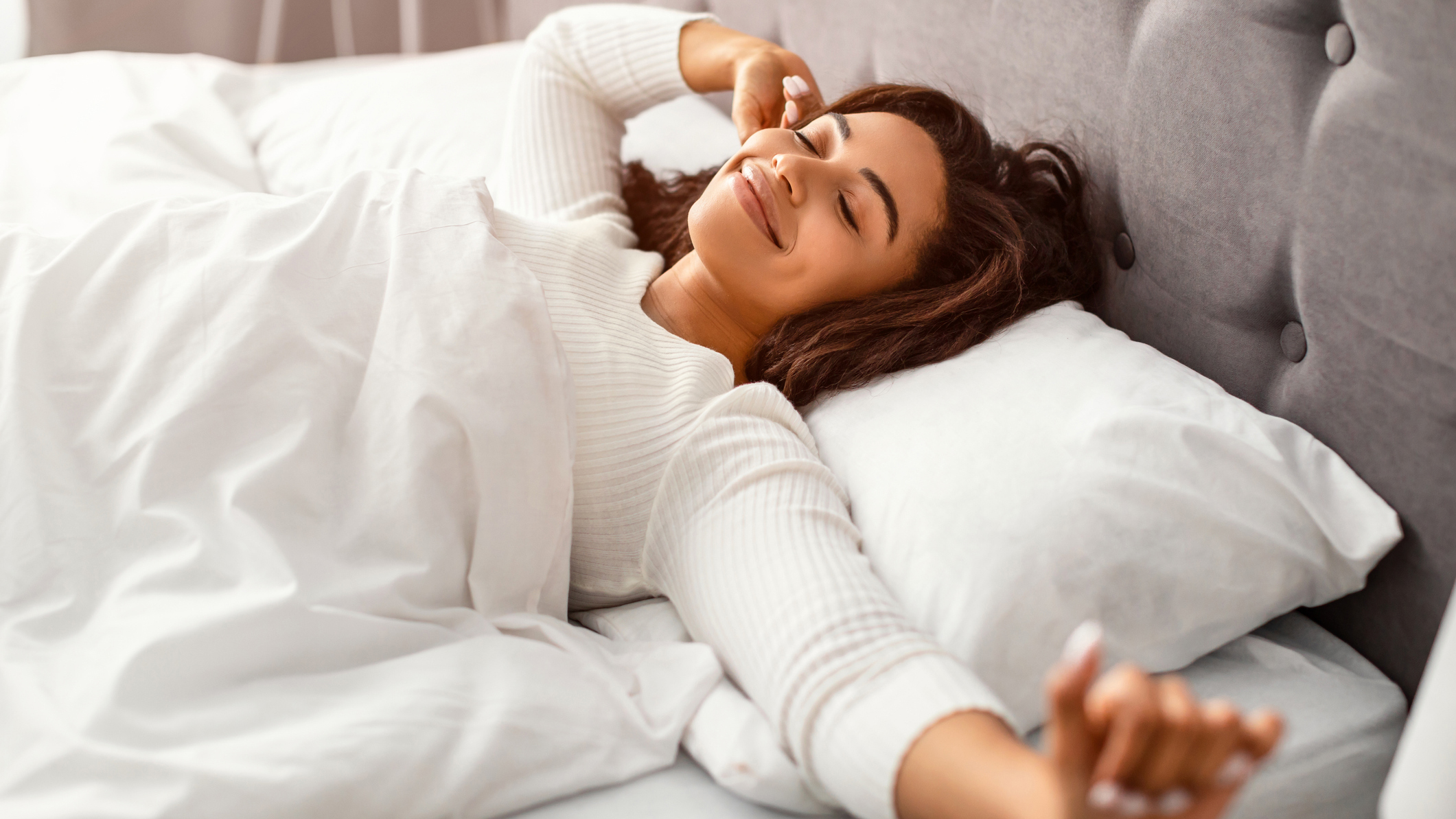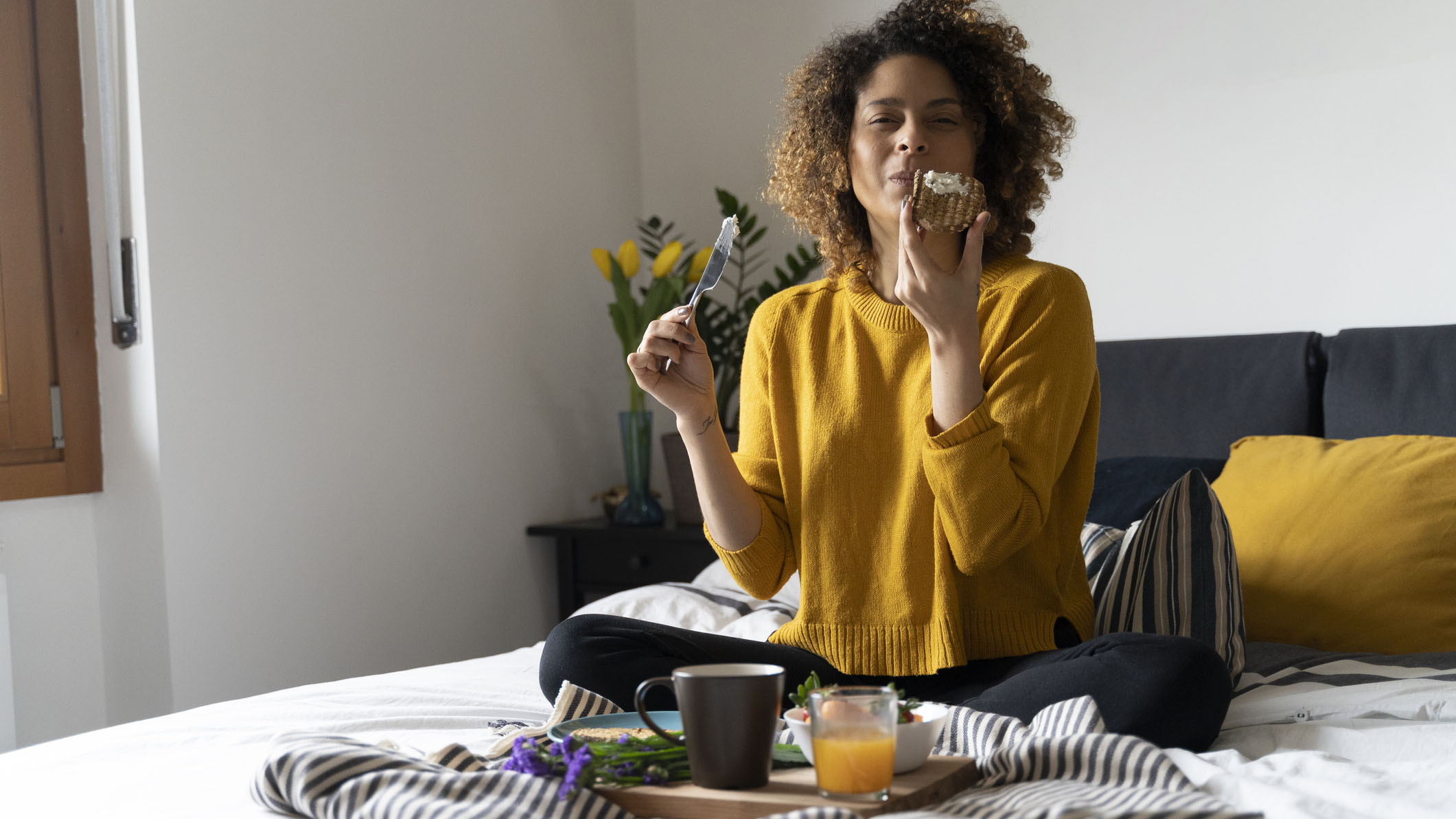Going to bed late could damage your mental health, new study says

Are you a night owl or a morning lark? We all operate on a sleep schedule that works for the routines and rhythms of our unique lives, but many of us would describe ourselves as being either a natural early riser, someone who prefers to stay up late into the night — or sitting somewhere in the middle.
However, new research suggests that night owl behavior could be harming our mental health. A large study conducted by scientists at Stanford Medicine indicates that those who admit to staying awake into the early hours of the morning had higher rates of mental health disorders, including depression and anxiety.
Key takeaways from the new study:
- Those who go to bed later are more likely to suffer from poor mental health
- Those who go to bed and wake early have best mental health
- For healthy ageing, it's recommended that you go to sleep before 1am
Regardless of whether study participants were staying up late out of necessity or following a natural urge to burn the midnight oil, researchers discovered that going to sleep after 1am had a detrimental effect on their mental health.
Here, we’ll take a closer look at what this study means for our sleep behavior, plus explore ways we can shift our sleep patterns with the help of a chartered psychologist.
What are chronotypes and how do they impact sleep?
As well as our schedules and routines, there’s also a biological reason for our tendency to either stay up late, wake up early, or sit somewhere between both. This is due to our chronotype, which helps determine when you feel the natural urge to sleep.
As well as when you feel most inclined to sleep, our chronotype — determined by genetics, age and other factors — can also influence your core body temperature and your eating habits. There are four main chronotypes, each with a different preferred window of productivity, wake and sleep times.
Unlike our circadian rhythm (the body’s internal clock), you’re unable to change your chronotype. While that doesn’t mean you’re unable to sleep outside of what feels most natural, it can be difficult to maintain a sleep schedule that goes against your chronotype.
Get instant access to breaking news, the hottest reviews, great deals and helpful tips.
How staying up late could affect mental health

Researchers at Stanford Medicine followed the sleep habits of over 73,888 adults in the UK, each of whom identified as a morning type, evening type, or somewhere in the middle. At the end of the study, they found that evening types were more likely to suffer from poorer mental health.
Regardless of whether study participants were staying up late out of necessity or following a natural urge determined by their chronotype, the outcome — higher rates of mental and behavioral disorders — remained the same.
“We found that alignment with your chronotype is not crucial here, and that really it’s being up late that is not good for your mental health,” Jamie Zeitzer, PhD, professor of psychiatry and behavioral sciences and the senior author of the study, told the Stanford Medicine news center. “The big unknown is why.”
The study found that morning types, those who go to bed early and wake early, had the best mental health of all groups.
How to fix your sleep schedule in 5 steps
If you’re a night owl looking to shift your sleep schedule to earlier in the morning, you can. We spoke to Dr Lindsay Browning, a chartered psychologist and neuroscientist, earlier last year to find out exactly how to fix a broken sleep schedule. Whether your nighttime habits have become skewed due to parenting, nighttime procrastination, here are Dr Browning's top tips to retraining your body to going to sleep earlier.
1. Shift your bedtime back by 20 minutes
If you're currently going to bed at 1am and you'd like to be in bed by 11pm, it can be temping to hop into bed at 10.55pm and hope for the best - resist the urge to do this.
“Yes you can fix this straight off and get up two hours earlier than you are right now, but that will be harder initially than if you were to fix your sleep schedule over several days,@ explains Dr Browning. "Shifting your sleep by 20 minutes a day is easily doable and has no negative effects whatsoever.”
Using this method means that you could shift your sleep schedule forwards by an entire hour over the course of one weekend.
2. Shift your wake time forward by 20 minutes

If you're adjusting your bed time, you need to adjust your wake time, too. “Don’t forget that if you’re moving your bedtime back by 20 minutes a night, you need to move your wake time forward by 20 minutes a day," says Dr Browning. "And it’s really important to get up straight away because if you let yourself sleep in, all of this work is pointless. Pressing the snooze button several times is one of the worst things you can do for your sleep.”
3. Set a bedtime reminder
“Owl types need to set bedtime reminders, because otherwise they’ll keep going and then before they know it, it’s 2am and they have to be up at 7am for work," explains Dr Browning. "All that happens there is the owl misses out on sleep. On weekends, resist the temptation to go to bed late and wake up late because that’s going to shift your body clock again."
4. Don't skip breakfast

As a night owl, you also need to think about when you're eating, because if you skip breakfast and don’t eat until around 11am, your body won’t think it’s morning until 11am. "Even if you can’t face eating a full breakfast upon waking up, have something small to wake up your digestive system. Otherwise you’ll be sleepwalking through the morning."
5. Get plenty of early sunlight exposure
We might not be able to change our chronotype, but we can adjust our circadian rhythm - and one of the most effective tools at our disposal is natural daylight. “Owls aren’t at their best first thing, so it’s more important for them to get really good sun exposure first thing to help boost them into feeling more awake," explains Dr Browning.
Early morning daylight exposure prompts your body to produce a hormone called serotonin, which helps you feel alert and refreshed. Serotonin later becomes metabolised into melatonin, the hormone which helps signal to your body that it's time for sleep, which will make it easier for you to nod off at night.

Nicola is the Sleep Editor at Tom’s Guide, where she helps steer the mattress and sleep content published on Tom’s Guide, including our Best Mattress for Back Pain buying guide. With a career in journalism spanning the best part of two decades, Nicola brings experience to the team and the knowledge of what makes a great article, whether that’s a how-to mattress cleaning feature, a deep dive into melatonin gummies, or an in-depth mattress review. As a sleep editor, few better understand how important a decent mattress is to the overall quality of our sleep, and precisely how our sleep impacts our physical and mental health. As well as tackling the vast topic of sleep, Nicola joins the raft of expert mattress specialists at Tom’s Guide, who test and compare a wide range of mattresses in order to guide readers towards the very best options on the market.
